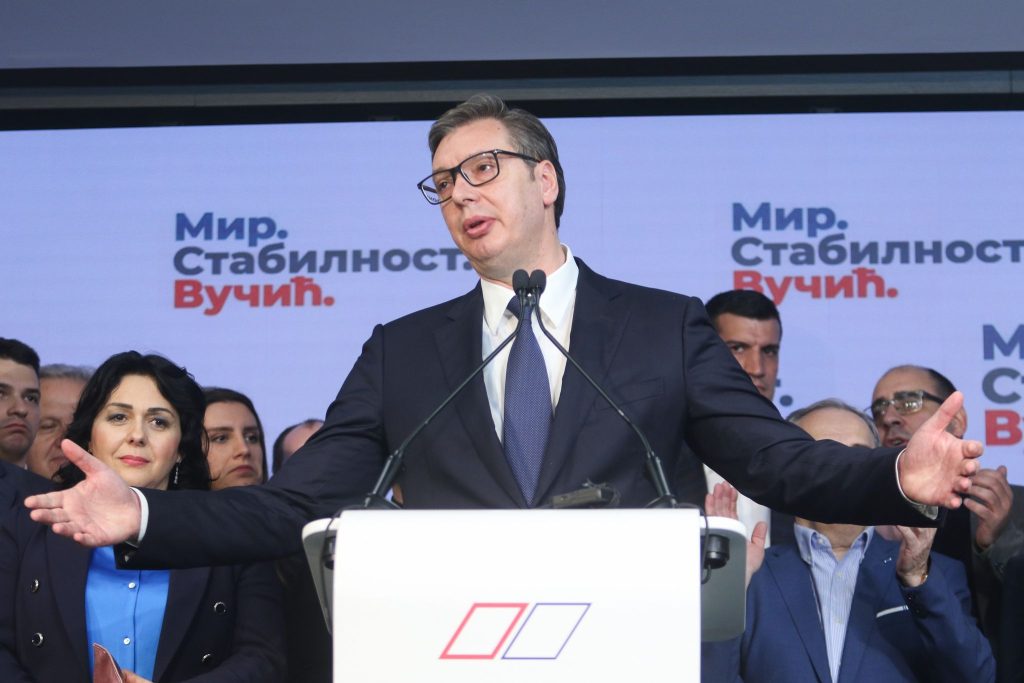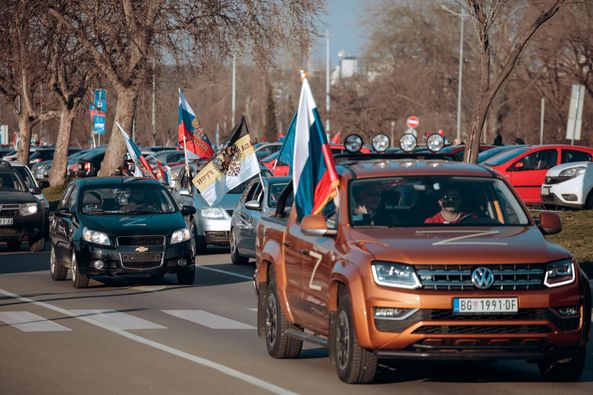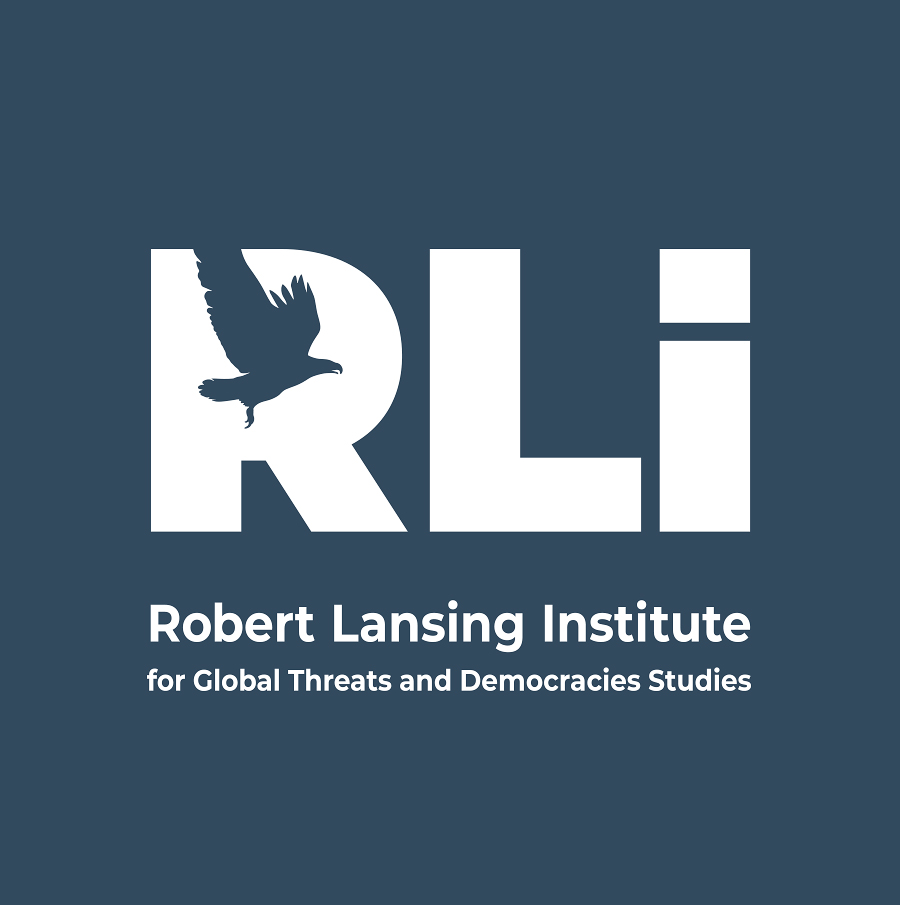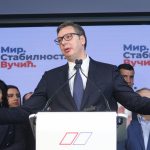Thirty years after the siege of Sarajevo by Serbian forces, which is considered one of the longest sieges in the history of modern warfare, where more than 11,500 people were killed followed also the genocide in Srebrenica, rhetoric of the president of Serbia about the war, remains the same. In a video posted on Youtube, Aleksandar Vucic, then Minister of Information in Slobodan Milosevic government, is shown nine days after the Srebrenica genocide caused by Serbian forces, threatening that ‘if you kill a Serb, we will kill 100 Muslims for it’. This man who never apologized for either the Srebrenica genocide or the one in Kosovo, contrariwise, used the same rhetoric during all these years. Moreover, last week, won another 5-year term as the head of the Serbian state.
He carried out similar propaganda during the election campaign, through his official Instagram account, Vucic appeared with a ‘hysterical’ video with the caption “hitno” which means urgent. In this video among other things, he says that Kosovo Prime minister Albin Kurti was preparing to attack the Serbs. The video was posted on the 23rd anniversary of NATO intervention against Yugoslav military targets to stop the Serb genocide in Kosovo. On this video Vucic also threatens that the Brussels Agreement no longer exists, according to him. The video was posted immediately after the Kosovo Government decided to ban the holding of Serbian parliamentary and presidential elections within the territory of Kosovo. Official Pristina insisted that official Belgrade should send a request for elections to be held in Serb-majority areas in Kosovo, which Serbia considered it as pressure for recognition. QUINT member states have expressed “great disappointment” with the decision of the Government of Kosovo. However, Kosovo Prime Minister Kurti says there is no decision of his government that stopped Serbia’s tripartite elections in Kosovo. Simply, according to him, there was no agreement on this issue.
Just two hours after Vucic’s video was posted on Instagram, Belgrade was flooded with thousands of protesters to support Russia in its invasion of Ukraine, shouting in front of the Russian embassy “Serbs and Russian brothers forever”, anti-NATO and anti-EU banners were also seen at the protest. There were protests and attempts for destabilization in the north of Kosovo the next day, where Serbian politicians operating in Kosovo were also took place on the protest, to oppose the Kosovo Government decision for banning of Serbian elections.
The whole political and propaganda Vucic`s battle against Kosovo, to win another presidential mandate, could result in the suspension of the dialogue between the two countries again, as a result also likely regional destabilization due to the disagreements between the two countries. Vucic’s goal was not practically to hold Serbian elections in Kosovo, but to undermine Kosovo statehood and damage its image in international opinion, as happened with the QUINT member states reaction.
Aleksandar Vucic won the election convincingly last Sunday, on the three main narratives he used, for another five-year term as the head of Serbia. By raising the stakes of war with Kosovo, by using a pro-russian narrative knowing that there is a pro-russian sentiment in Serbia, showing his anti-NATO and anti-EU perspective because he is the one who feeds that narrative in Western Balkans. But how much Vucic’s victory will cost the region remains to be seen, given that the Vucic’s idealization of Russian President Vladimir Putin, broadcasting the propaganda which calls for destabilization, as in case of video posted on Instagram, when he addressed the Serbian people that the Prime Minister of Kosovo has decided to attack the Serbs. Such propaganda does not promise well future for the region. We are witnessing similar propaganda that is taking place in the occupation of Ukraine by Russia. “Ukraine has attacked Russia” is the phrase Putin used as bait for domestic consumption in the invasion of Ukraine, while the state-controlled media, are not allowed to broadcast images of what is really happening in Ukraine.
In Serbia last year, Twitter identified several media as state backed media over which the state exercises control over editorial content through financial means or direct pressure. Otherwise, Aleksandar Vucic is president of Serbia since May 2017, this is his second five-year term mandate as President of Serbia. Before becoming president, he served as prime minister from 2014-2017. During the war in Kosovo, he served under the Slobodan Milošević regime as Minister of Information. With the beginning of NATO bombing of Yugoslavia, Vucic ordered Belgrade media editors to pass all the news once through the ministry he headed, then to publish it, during this period he ordered deportation from Serbia of foreign journalists who were from NATO member states.







